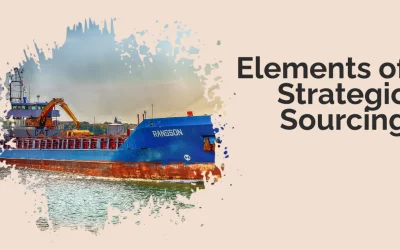Vendor Management – its Benefits, Challenges, Process & Best Practices
Vendor management is an organisation’s process which empowers it to take the necessary actions to limit the cost and reduce risks relating to the suppliers to ensure exemplary services delivered and gained valuable services over the long-term.
These include researching for the best appropriate suppliers, locating and obtaining pricing, and evaluating the quality and quantity of work. In these instances, a vendor management system or vendor management strategy should be considered as a best practice.
Phycomex helps customers with vendor management strategies for supply chain security and cost savings. Below is a brief overview of the things to consider when putting together an effective vendor management process which we hope you find useful.
What is Vendor Management?
Vendor management process is the overseeing, managing, and directing the activities of vendors. Key vendors are responsible for providing products and services that support an organization’s goals. Vendors must be managed in order to ensure that they meet the organization’s expectations and comply with regulations.
A vendor management strategy may include determining which vendors to use, monitoring vendor performance, and resolving disputes. It can also include setting standards for vendor behavior and developing a vendor management plan.
There is a renewed focus on vendor management as businesses strive to reduce costs and increase efficiency. In order to effectively manage vendors, it is important to have a clear understanding of their processes and procedures. Train your staff in these areas so that they can be effective partners with your vendors or use market experts like Phycomex as an extension of your procurement team.
Understanding Vendor Management
Here are 5 key points to keep in mind when implementing Vendor Management:
- Understanding the needs of your supplier base is essential to successful Vendor Management.
- Vendor Management is about managing suppliers for the long term.
- Vendor Management can be done by a variety of methods, including an annual review, or a regular monthly schedule.
- Vendors can be divided into three categories: strategic, transactional, and technical vendors.
- A strategic vendor is a supplier that is critical to the success of a company’s operations. These vendors provide products or services that are essential to the business and are not easily replaced. companies work closely with their strategic vendors to ensure that they receive the best pricing and quality possible.
- A transactional vendor is a supplier that provides goods or services that meet a particular customer need, in exchange for money. Transactions can be either one-time or recurring, and the vendor may be a supplier of goods, a service provider, or both. Typically these are less complicated and rarely bespoke or custom.
- A technical vendor is a company that provides technology-related products or services to businesses or other organizations. Technical vendors may sell hardware, software, or both, and may offer services such as installation, training, or support. These are generally specialist areas which often require domain experts for custom or bespoke assignments/ projects.
- Vendors are not to be treated like employees, but rather as partners.
Vendor Management Software- Getting The Right Tools
Selecting the right tools for managing vendors can be an overwhelming task. There are a variety of tools available, and each may have its own benefits and drawbacks. Before making a decision, it is important to consider the needs of your business.
Some factors to consider include the type of vendors you work with, the volume of different vendors and the level of sophistication of your procurement process. If you dont have a dedicate vendor management team then the right vendor management software may be even more important to consider as it can make the operational aspects of vendor relationship management a lot more efficient.
Why Vendor Management is Important
Vendor management is an essential part of any business, and it’s especially important in the energy industry with a hand full of market leading suppliers, some of whom often take advantage of their domonant position.
Virtually every business today relies on energy and commodity data, technology, systems and services, and as such, it’s essential that businesses have reliable and trustworthy vendors. If a business doesn’t have a good system in place for managing its vendors, it could find itself with unreliable or even at a competiative disadvantage without the right support and guidance.
Phycomex helps some of the worlds leading companies effecitively manage vendors of energy and commodity data, remain compliant and more importantly reduce costs.
Identifying The Right Vendors
Selecting the right vendors for your business can be a daunting task. You need to use and effective vendor management strategy to find vendors that offer the best products and services at the best prices. You also need to find vendors that are reliable and trustworthy.
To identify and select the right vendors, you need to research the available options. Use online resources, such as vendor review websites, to learn about different vendors. Talk to your colleagues and friends to get recommendations for reputable vendors.
If you have a dedicated vendor management team in house that covers all the various suppliers your organisation may need then this step is relatively simple. However, the reality is you have a small team with diverse responsibilities making it impossible to really know any vendor thoroughly.
Phycomex is the only company of its kind solely focussing on energy and commodity information suppliers. Often an area where the bulk of an energy companies information spends are. Outsourcing specialist areas like this to support your exicting team is a great way to ensure you can identify the right vendors.
We connect the gap between front office and procurement using our decades of experience selling and buying energy information.
Share Goals, Establish Priorities
One of the most important aspects of managing a data or technology vendor is setting and sharing common goals. Both the vendor and the customer need to be clear on what is expected from the relationship in order to ensure that everyone is working towards the same objectives. It is also important to establish priorities for vendor management.
This includes determining which vendors are most important to the organization and what needs to be done in order to maintain a positive relationship with them.
Phycomex helps customers develop a robust vendor management system to reduce risk of non compliance or become a victim of a dominant supplier. As part of our contract negotiation process we apply vendor management best practices where both supplier and customer know their responsibilities with predefined goals.
Negotiate a Win-Win outcome
The goal of any negotiation is to reach a win-win outcome, in which both customer and supplier feel like they have won.
This can be accomplished by focusing on interests, not positions, and by exploring creative solutions that meet the needs of both parties. It’s important to keep in mind that a negotiation is a process, and it’s often necessary to make compromises in order to reach an agreement. By working together cooperatively, customer and supplier can create a mutually beneficial outcome.
Its important to understand each suppliers position when managing multiple vendors and sometimes one can be played against another. Bear in mind this process is an art where the suppliers interest are to increase costs so all their tactics will be to explore areas for additional charges. Therefore exposing your exact requirement at the outset may not always lead to cost savings.
Phycomex helps customers negotiate from a position of full transparency of suppliers interests. This can include vendor motivations, packages, discounts, pricing structures etc so when customers negotiate contracts, they do so from a superior position with all the facts. Not just those a supplier may choose to disclose.
Monitor KPIs and Document Communication
To effectively manage vendor relationships, it is important to set up protocols and procedures.
This can help to ensure that all parties are aware of expectations and that any problems are dealt with as soon as possible. There are a number of ways to go about setting up these protocols and procedures, depending on the type of vendor involved and the size and complexity of the organization.
Phycomex strategic reviews help customers identify gaps and establish business goals which are then used as part of contract management with key metrics, risk factors, relevant licenses, cost controls and performance management.
We map out all the steps from vendor onboarding, managing relationships, compliance breaches, negotiating contracts and controlling costs upon renewals.
Challenges of Vendor Management
Maintaining a positive and healthy relationship with your vendors is essential for any business. However, managing a vendor can be challenging, especially if your company experiences any of the following common problems:
- Having unrealistic expectations. It’s important to be realistic when setting goals and expectations for your vendor. Failing to do so can lead to frustration on both sides.
- Not defining or communicating roles and responsibilities clearly. This can cause confusion and lead to tasks not being completed effectively or on time.
- Not having a formal contract in place. This can create uncertainty about who is responsible for what, which can ultimately damage the relationship.
- Contract breach. How to handle data security issues and prevent costly compliance issues.
- Threats of termination of service. Only really a practice of the fortunate few suppliers that in some cases abuse their market dominant position to hold customers hostage unless increased fees are paid.
Phycomex helps clients bridge the gap between supplier and vendor creating an effective vendor management strategy, with clear accountability and transparency so informed decision can be made throughout any vendor contract negotiation.
Clear and Effective Communication.
Clear and effective communication between a vendor and their client is important for a number of reasons. First, it helps ensure that everyone is on the same page with regards to the project at hand.
This can help avoid misunderstandings and ensure that everyone is working towards the same goal. Additionally, effective communication can help build a strong working relationship between vendor and client, which can be beneficial down the road. Finally, clear communication can help resolve any conflicts that may arise during the course of the project.
Vendor-client relationships are often fraught with conflict, however. Typically, these conflicts are generated by the client’s unrealistic expectations and the vendor’s inability to deliver on those expectations. As a result, clear communication is often essential for successfully resolving these types of issues. The other side of this coin is the vendor’s lack of clarity regarding what the client is actually looking for. This can be a difficult issue for both sides to resolve, as both parties want the project to be successful and profitable.
In some cases, a vendor may not have the technical skills or resources to complete the project. In this case, the client and vendor find themselves at a crossroads where they must either renegotiate the contract to include additional services or try to find another vendor for the job.
Prior to starting Phycomex we sold and licensed 1,000 of energy companies for commodity pricing data. And over the past 5 years we have been supporting the buyers od energy and commodity information. Having first hand experiance of both sides of the supply chain we can ensure nothing is missed when it comes to vendor related information and procurement management.
Evaluation: The process of evaluating and selecting a vendor.
The process of evaluating and selecting a vendor can vary depending on the organization, but typically includes a review of the vendor’s capabilities, pricing, and references. The selection process may also include a demonstration of the product or service.
There are many factors to consider when selecting a vendor. The following steps outline the process of evaluating and selecting a vendor:
- Determine the purpose of the project.
- Evaluate the vendor’s past performance.
- Assess the vendor’s ability to meet your needs.
- Review any warranties or contracts offered by the vendor.
- Make a decision based on your findings.
The Importance of Contractual Obligations.
Contractual obligations are important in any business relationship. When both parties meet their obligations, the relationship is strengthened and can lead to a long-term partnership. It is important to ensure that both parties understand their contractual obligations, and to make sure that they are met. If one party fails to meet their obligations, the relationship can be damaged.
Ongoing Management: The importance of ongoing management and regular reviews of vendor relationships.
Conclusion:
In conclusion, when selecting a vendor, it is important to consider all the factors involved in order to make the best decision for your business. By taking the time to evaluate each option, you can be sure that you are making the most informed decision possible.
Maintaining a positive and healthy relationship with your vendors is essential for any business. However, managing a vendor can be challenging, especially if your company experiences any of the following common problems:
1. Having unrealistic expectations. It’s important to be realistic when setting goals and expectations for your vendor. Failing to do so can lead to frustration on both sides.
2. Not defining or communicating roles and responsibilities clearly. This can cause confusion and lead to tasks not being completed effectively or on time.
3. Not having a formal contract in place. This can create uncertainty about who is responsible for what, which can ultimately damage the relationship.
4. Sometimes outsourcing specialist areas like energy and commodity data supplier to industry experts like Phycomex can increase operational efficiency and reduce costs. If you found this useful please get in touch to find out how we have maintained a 100% success rate with our clients over the past 5 years.






0 Comments